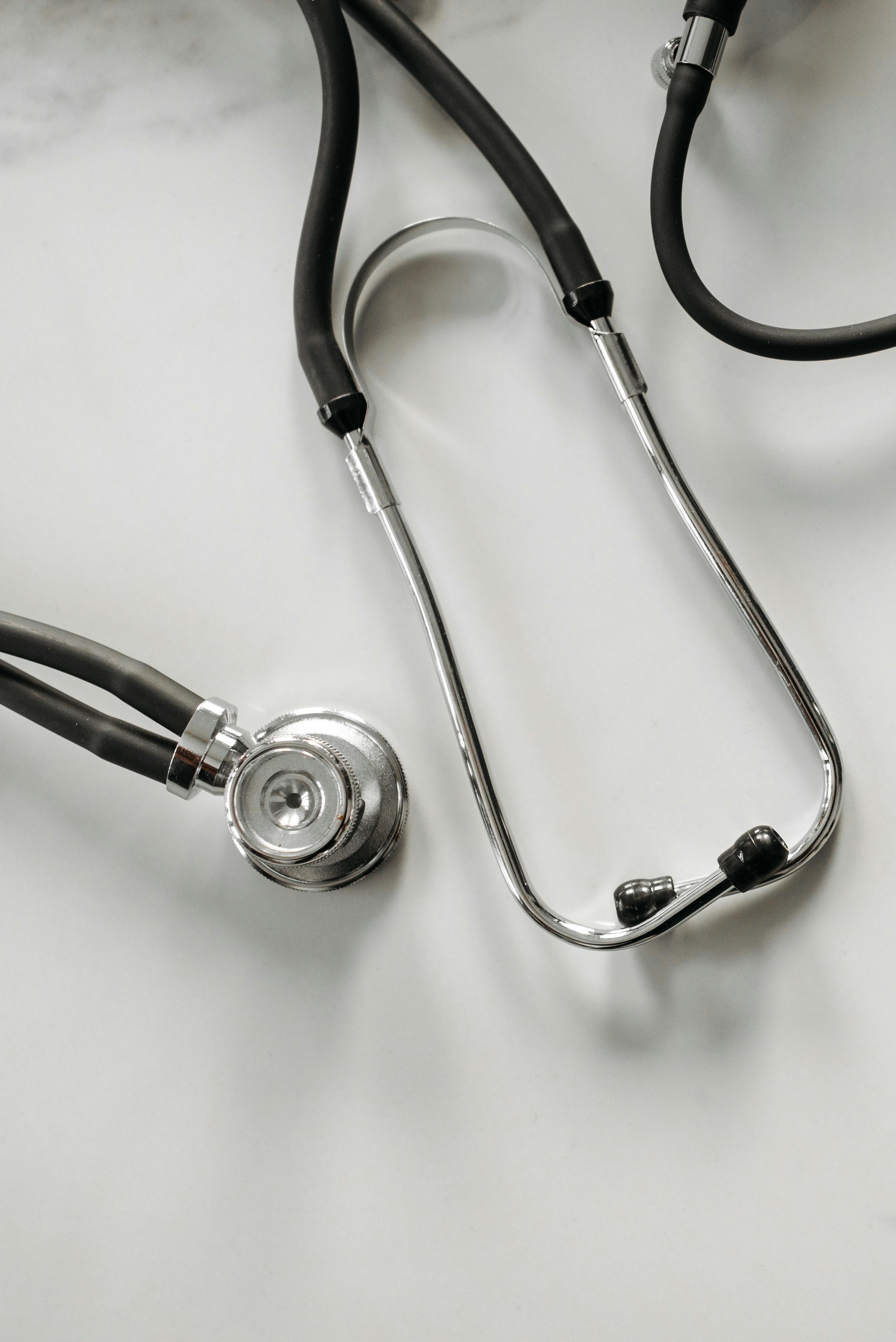
At Wellness Connection we are deeply committed to facilitating healthcare providers in leveraging technology for remote patient monitoring with the goal of improving patient health outcomes, increasing the efficiency of patient care, and providing a holistic wellness journey.
Our Solutions
We help you to keep your patients motivated and committed to their health program
Remote Physiological Management (RPM)
Remote Physiological Management (RPM) is an innovative healthcare solution that allows patients to track and share their vital health data with healthcare providers from the comfort of their homes. Through connected devices like blood pressure monitors, glucose meters, or pulse oximeters, RPM enables continuous monitoring of key health metrics in real time.
Benefits of RPM
Continuous Monitoring
RPM devices capture and transmit critical data such as heart rate, blood pressure, glucose levels, and oxygen saturation, ensuring real-time feedback for timely interventions.Early Detection of Health Issues
By monitoring daily changes, healthcare providers can detect potential issues early, reducing the risk of complications or hospitalizations.Convenience for Patients
RPM minimizes the need for frequent in-person visits, allowing patients to manage chronic conditions more efficiently from home.Improved Healthcare Outcomes
Timely adjustments to treatment plans, based on real-time data, lead to better health outcomes and enhanced patient satisfaction.Cost-Effective Care
RPM can reduce healthcare costs by preventing unnecessary hospital admissions and emergency room visits.
Remote Therapeutic Management (RTM)
Remote Therapeutic Management (RTM) is a healthcare solution that focuses on managing patient treatments and therapeutic outcomes remotely. RTM uses digital tools and connected devices to track the use of medications, therapies, and other prescribed interventions, ensuring patients adhere to their treatment plans.
Benefits of RTM
Treatment Adherence Tracking
RTM monitors patient compliance with prescribed treatments, including medication intake and therapeutic exercises, ensuring patients follow their healthcare plans effectively.Real-Time Feedback
Data collected from RTM devices provide healthcare providers with real-time insights into patient progress, enabling timely adjustments to treatment plans for optimal outcomes.
Improved Patient Engagement
RTM fosters better communication between patients and providers by encouraging patients to take a proactive role in their care, leading to greater engagement and accountability.Personalized Care Plans
With constant tracking and reporting, RTM enables healthcare providers to create tailored interventions based on the individual needs of patients, improving recovery and treatment success.Reduced Healthcare Costs
By helping patients adhere to treatment protocols, RTM can reduce hospital readmissions and complications, leading to more cost-effective care.
Chronic Care Management (CCM)
Chronic Care Management (CCM) is a healthcare service designed to provide continuous support for patients with chronic conditions. It offers coordinated care outside of regular doctor visits, focusing on long-term health management through personalized care plans and ongoing communication with healthcare providers.
Benefits of CCM
Comprehensive Care Coordination
CCM ensures that all aspects of a patient’s health—medications, therapies, and specialist care—are well-coordinated by a dedicated healthcare team, improving overall management of chronic conditions.Personalized Care Plans
Each patient receives an individualized care plan tailored to their unique needs, including medication management, lifestyle recommendations, and preventive care strategies.Proactive Monitoring
Regular check-ins and monitoring help identify potential health concerns early, enabling timely interventions that can prevent complications and hospitalizations.Improved Health Outcomes
Through continuous management and close communication with providers, CCM helps patients achieve better control over chronic conditions, leading to improved quality of life.
Principal Care Management (PCM)
Principal Care Management (PCM) is a specialized healthcare service designed for patients managing a single complex or chronic condition. PCM focuses on providing individualized care to help patients manage their primary condition effectively, coordinating treatment and support from healthcare providers.
Benefits of PCM
Focused Condition Management
PCM is tailored for patients dealing with one major chronic condition, such as diabetes, heart failure, or hypertension, ensuring focused and specialized care to improve health outcomes.Personalized Care Plans
Each patient receives a customized treatment plan specific to their primary condition, including medication management, lifestyle changes, and regular monitoring.Enhanced Communication
Patients have regular access to healthcare providers for advice and adjustments to their care plan, ensuring continuous monitoring and timely interventions.Reduced Hospitalizations
By proactively managing the condition, PCM helps reduce hospital readmissions and emergency visits through early detection and intervention.Improved Quality of Life
With dedicated support and regular check-ins, PCM helps patients achieve better control over their condition, leading to improved overall well-being and fewer health complications.
Collaborative Care Management (CoCM)
Collaborative Care Management (CoCM) is an integrated healthcare model designed to manage mental and behavioral health conditions alongside physical health concerns. It brings together primary care providers, mental health specialists, and care managers to deliver coordinated, team-based care for patients with conditions such as depression, or substance use disorders.
Benefits of CoCM
Integrated Care Team
CoCM connects primary care providers with mental health professionals (psychiatrists, therapists) and care managers, ensuring a comprehensive approach to both physical and mental health.Regular Monitoring & Follow-Up
Patients receive regular assessments to track their mental health progress and adjust treatment plans based on real-time feedback, improving long-term outcomes.Personalized Treatment Plans
CoCM develops individualized care plans that address both mental and physical health needs, leading to more holistic care for patients managing multiple conditions.Timely Interventions
Through continuous monitoring and communication, CoCM facilitates early identification of mental health concerns, allowing for quick intervention and adjustment to treatment plans.Improved Patient Outcomes
CoCM helps improve both mental health and overall well-being by offering integrated care, reducing hospitalizations, and enhancing treatment adherence.
Principal Illness Navigator (PIN)
Principal Illness Navigator (PIN) is a specialized healthcare service designed to guide and support patients managing a specific chronic or complex illness. PIN provides personalized navigation through the healthcare system, offering expert assistance in managing treatments, coordinating care, and accessing resources related to their primary condition.
Benefits of PIN
Personalized Navigation
PIN assigns a dedicated care navigator to each patient, providing individualized support and guidance throughout their treatment journey.Coordinated Care
The navigator helps coordinate appointments, manage communication between specialists, and ensure that all aspects of the patient's care are seamlessly integrated.Expert Guidance
Patients receive expert advice on managing their primary illness, including treatment options, medication management, and lifestyle adjustments tailored to their specific needs.Resource Access
PIN helps patients access necessary resources, such as support groups, educational materials, and financial assistance, enhancing their overall care experience.Improved Outcomes
By providing continuous support and ensuring that patients follow their treatment plans effectively, PIN helps improve health outcomes and life quality.
Behavioral Health Assessments (BHA)
Behavioral Health Assessments (BHA) is a healthcare approach that combines mental and behavioral health services with primary care to address both psychological and physical health needs. BHI creates a seamless, collaborative care model where healthcare providers work together to treat mental health conditions such as anxiety, depression, and substance use disorders alongside physical health concerns.
Benefits of BHA
Comprehensive Care
BHI integrates mental health services into primary care settings, allowing patients to receive holistic care for both their physical and behavioral health needs.Coordinated Treatment Plans
A team of healthcare professionals, including primary care physicians, therapists, and behavioral health specialists, work together to create personalized treatment plans that address all aspects of a patient's well-being.Early Detection of Mental Health Issues
With routine mental health screenings during primary care visits, BHI allows for early identification of issues like depression or anxiety, enabling timely interventions.Ongoing Monitoring & Support
Patients benefit from continuous monitoring of their mental health progress, allowing healthcare providers to adjust treatment as needed, leading to better outcomes.Improved Overall Health
By treating mental health issues in conjunction with physical health, BHI reduces the impact of mental illness on chronic conditions, improving overall patient well-being and quality of life.
Guiding an Improved Dementia Experience (GUIDE)
GUIDE (Guiding an Improved Dementia Experience) is a specialized care program designed to support individuals with dementia and their caregivers. It offers a comprehensive approach to managing the challenges of dementia by providing tailored care plans, expert guidance, and continuous support to improve quality of life for patients and families.
Benefits of GUIDE
Personalized Care Plans
GUIDE creates individualized care strategies tailored to the specific needs of each patient, focusing on cognitive health, physical well-being, and emotional support.Expert Support
Patients and caregivers receive ongoing assistance from healthcare professionals who specialize in dementia care, providing guidance on managing symptoms, treatments, and daily living challenges.Caregiver Education & Resources
GUIDE offers caregivers the tools and resources they need to better understand dementia, including access to educational materials, support groups, and respite care options.Continuous Monitoring & Adjustments
The program regularly assesses the patient's progress, ensuring that care plans are adjusted as the condition evolves to provide the most effective support.Improved Quality of Life
GUIDE helps reduce the stress and confusion associated with dementia by providing structured support, improving the patient's daily experience and offering caregivers peace of mind.
Advanced Primary Care Management (APCM)
The Advanced Primary Care Management (APCM) program is a holistic healthcare approach focused on enhancing the quality and coordination of primary care services. It aims to provide comprehensive, patient-centered care by integrating preventative, acute, and chronic care management, all under one seamless plan.
Benefits of APCM
Comprehensive Care Coordination
APCM offers a team-based approach, with healthcare professionals working together to coordinate all aspects of a patient’s care, from preventive screenings to chronic disease management.Personalized Care Plans
Patients receive individualized care plans tailored to their unique health needs, promoting effective management of conditions like diabetes, hypertension, and heart disease.Proactive Health Monitoring
APCM emphasizes preventive care through regular checkups, monitoring of health metrics, and early detection of potential issues to avoid future complications.Enhanced Patient Engagement
Through continuous communication and regular follow-ups, APCM encourages patients to stay engaged in their own healthcare, leading to better adherence to treatment plans.Improved Health Outcomes
With a focus on preventive care, early interventions, and efficient care coordination, APCM reduces hospitalizations, improves patient satisfaction, and enhances overall health outcomes.










